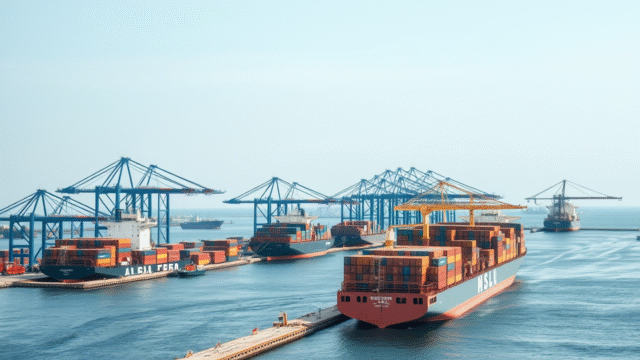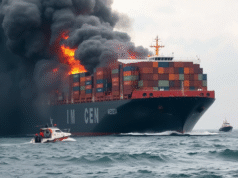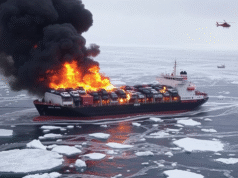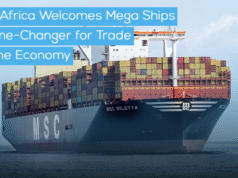The Middle East is once again under the spotlight as recent Israeli airstrikes on Iran’s military and nuclear sites spark new fears. This sudden escalation has alarmed the global shipping industry. One of the biggest concerns is the Strait of Hormuz — a narrow yet crucial path through which a large chunk of the world’s container traffic flows.
Commercial Shipping Still Moving , But for How Long?
So far, Iran has not directly attacked commercial vessels. However, the UK Maritime Trade Operations (UKMTO) has raised a red flag. It warns of the risk of rapid conflict escalation, especially after Iran responded to Israel with a drone strike. While there’s no immediate danger, experts say the proximity of this region to busy shipping routes increases the chance of disruption.
Adding to the concern, Yemen’s Houthi rebels — known for targeting ships — may step in if the U.S. becomes involved in the conflict. That could affect key shipping lanes even further.
Iran Holds a Ship, Tension Mounts
A full blockade of the Strait of Hormuz is unlikely, mainly because Iran depends heavily on oil exports. But the uncertainty is unsettling. Back on April 15, Iran seized the MSC Aries, a container ship linked to an Israeli-affiliated company, Zodiac Maritime. This incident has already sent shockwaves through the industry.
Shipping lines are quietly responding. Many are now rerouting vessels connected to Israel away from Gulf waters. Industry expert Lars Jensen pointed out that it took just a few attacks in the Red Sea last year to push big carriers out. The same could easily happen in Hormuz.
What If the Strait of Hormuz Shuts Down?
The impact of even a partial closure would be huge. Dubai’s Jebel Ali Port handles 132 liner services. Abu Dhabi handles 55. Most of these ships pass through the Strait of Hormuz. A shutdown would cut off key ports in Saudi Arabia, Qatar, Bahrain, Kuwait, and Iraq from global trade routes.
Ripple Effects on Global Trade
Peter Sand, Chief Analyst at Xeneta, says even slight disruption would ripple across supply chains. Traffic would need to reroute through Indian ports, causing delays and raising shipping costs. This could also lead to congestion, spikes in oil prices, and new “security surcharges” by shipping carriers.
He also added that this situation might delay any major comeback for containerships in the Red Sea. Attacks from Iran-backed Houthi forces continue to threaten ships. Although the Houthis promised not to attack non-Israeli ships in the Suez Canal, that promise could change quickly.
Shipping Faces New Waves of Uncertainty
As conflicts heat up, shipping routes are under more pressure than ever. The world’s most important waterways are being tested — not just by war, but by growing unpredictability. With existing supply chain challenges already in play, any new threat could cause widespread global impact.
Adapted for www.shiportrade.com
News originally published by Global Trade Magazine.








